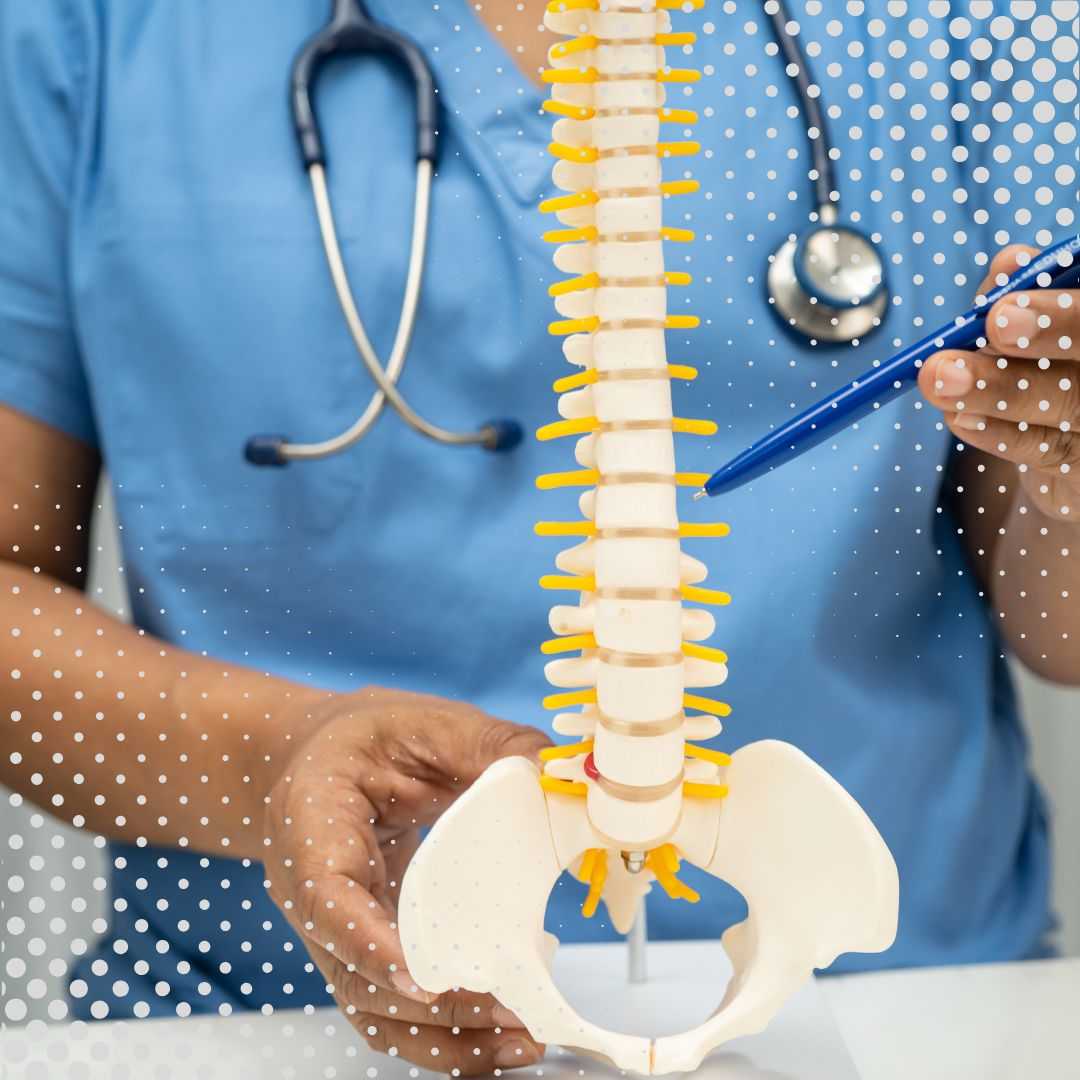.png)
Discover Hope: Stem Cell Therapy for Metabolic Conditions Abroad
Living with a metabolic condition can be a challenging journey, often marked by a cycle of managing symptoms, strict diets, and a constant concern for long-term health. Conditions like Type 2 Diabetes, Metabolic Syndrome, and obesity-related complications can profoundly impact your quality of life, leading to fatigue, discomfort, and the risk of more serious health issues. For many, traditional treatments provide management but don't always address the root cause, leaving a desire for more profound solutions.
If you're searching for "new treatments for diabetes," "regenerative medicine for metabolic syndrome," or "stem cell therapy for obesity," you've likely encountered the promising field of stem cell therapy. This innovative approach offers a beacon of hope, moving beyond symptom management to target the underlying cellular dysfunctions that characterize metabolic disorders. By harnessing the body's own reparative capabilities, stem cell therapy aims to restore balance, improve organ function, and potentially reduce the reliance on daily medications.
Imagine a future where your body's cells are revitalized, capable of producing insulin more effectively, or processing nutrients more efficiently. This is the promise of stem cell therapy for metabolic conditions. It's a cutting-edge medical procedure that is gaining traction globally, particularly in countries offering advanced care and often more accessible, affordable options for international patients seeking "stem cell treatment overseas." This guide will walk you through everything you need to know, from understanding your condition to exploring world-class treatment options abroad.
What are the common symptoms of metabolic conditions?
Metabolic conditions are a cluster of disorders that affect your body's ability to process nutrients and produce energy. Recognizing the "signs of metabolic syndrome" or "symptoms of prediabetes" early is crucial for effective intervention. Here are some common symptoms you might experience:
- Persistent Fatigue: Feeling constantly tired, even after adequate rest, can be a major indicator.
- Increased Thirst and Frequent Urination: Particularly common in diabetes, as the body tries to flush out excess sugar.
- Unexplained Weight Gain or Difficulty Losing Weight: Often centered around the abdomen, indicating visceral fat. Patients often search for "why am I gaining weight around my middle?"
- Blurred Vision: High blood sugar can affect the lens of your eye.
- Slow-Healing Sores or Frequent Infections: Impaired immune function is a common complication.
- Tingling or Numbness in Hands or Feet: A sign of nerve damage (neuropathy) often associated with diabetes.
- High Blood Pressure: A key component of metabolic syndrome.
- High Blood Sugar Levels: Detected through blood tests.
- High Triglycerides and Low HDL ("Good") Cholesterol: Also identified through blood tests.
- Increased Hunger: Even after eating, due to inefficient glucose utilization.
If you're experiencing several of these symptoms, it's vital to consult a healthcare professional for a proper diagnosis and to explore effective treatment pathways.
What causes metabolic conditions and who is at risk?
Understanding the "causes of type 2 diabetes" and "risk factors for metabolic syndrome" is key to prevention and treatment. Metabolic conditions rarely have a single cause but rather stem from a complex interplay of genetic predispositions and lifestyle choices. Here's a breakdown:
- Insulin Resistance: This is a cornerstone. Your body's cells don't respond effectively to insulin, a hormone that regulates blood sugar. The pancreas then works harder, eventually wearing out. People often ask, "why do my cells resist insulin?"
- Genetics: A family history of diabetes or metabolic syndrome significantly increases your risk.
- Obesity and Excess Abdominal Fat: Particularly visceral fat (fat around organs) is strongly linked to insulin resistance and inflammation. Many search for "why is belly fat so dangerous?"
- Lack of Physical Activity: Sedentary lifestyles contribute to weight gain and reduce insulin sensitivity.
- Unhealthy Diet: Diets high in processed foods, sugar, and unhealthy fats can lead to chronic inflammation and metabolic dysfunction.
- Age: The risk generally increases with age, though metabolic conditions are increasingly seen in younger populations.
- Ethnicity: Certain ethnic groups have a higher predisposition to developing these conditions.
- Hormonal Imbalances: Conditions like PCOS (Polycystic Ovary Syndrome) can increase metabolic risk.
- Chronic Inflammation: Low-grade, persistent inflammation in the body is a common underlying factor.
If you identify with several of these risk factors, proactive measures and exploring advanced treatments might be beneficial.
How does stem cell therapy work for metabolic conditions?
Stem cell therapy represents a paradigm shift from managing symptoms to addressing the cellular dysfunction at the heart of metabolic conditions. When people ask, "how does stem cell treatment for diabetes mechanism work?", the answer lies in the unique properties of stem cells, particularly Mesenchymal Stem Cells (MSCs):
- Regeneration of Damaged Cells: For conditions like Type 1 Diabetes, where insulin-producing beta cells in the pancreas are destroyed, stem cells have the potential to differentiate into new beta-like cells, or to stimulate existing ones, improving insulin production.
- Modulation of Immune Response: In autoimmune conditions like Type 1 Diabetes, MSCs can suppress the overactive immune system, preventing further destruction of pancreatic cells.
- Reduction of Inflammation: Chronic low-grade inflammation is a hallmark of metabolic syndrome and Type 2 Diabetes. Stem cells release anti-inflammatory factors that can calm this systemic inflammation, improving cellular health.
- Improvement of Insulin Sensitivity: Stem cells can enhance the ability of cells to respond to insulin, making them more efficient at absorbing glucose from the bloodstream. This is crucial for "stem cells for insulin resistance."
- Angiogenesis (New Blood Vessel Formation): Improved blood supply to damaged tissues, including the pancreas, can enhance function and nutrient delivery.
- Paracrine Effects: Stem cells secrete various growth factors, cytokines, and extracellular vesicles that communicate with surrounding cells, promoting repair, growth, and proper function. Think of them as tiny cellular repair crews signaling improvements throughout the body.
The specific type of stem cells used (e.g., adipose-derived, bone marrow-derived, umbilical cord-derived MSCs) and the method of administration (intravenous, local injection) depend on the condition and the treatment protocol.
Am I a good candidate for stem cell therapy for metabolic conditions?
Determining "who can get stem cell therapy for diabetes" or "eligibility for stem cell treatment metabolic" requires a comprehensive evaluation by a specialist. While stem cell therapy holds great promise, it's not suitable for everyone. General criteria often include:
- Diagnosis of a Metabolic Condition: This could include Type 1 or Type 2 Diabetes, Metabolic Syndrome, or obesity-related complications where traditional treatments have had limited success or side effects.
- Overall Health: Candidates should generally be in stable health, without severe co-existing conditions that could complicate the procedure or recovery.
- Absence of Active Infections: Any active infection must be resolved before treatment.
- No Active Cancers: Patients with current or recent cancer diagnoses are typically not candidates due to theoretical concerns about stem cell proliferation.
- Realistic Expectations: Understanding that while significant improvement is possible, results vary, and it's not always a "cure" but a way to improve function and quality of life.
- Age Considerations: While there isn't a strict age limit, very elderly patients or those with multiple severe comorbidities might be assessed more cautiously.
A detailed medical history, physical examination, and specific diagnostic tests will be conducted by the treatment provider to ascertain your suitability for the therapy and to tailor a personalized treatment plan.
What is the recovery time and what can I expect after stem cell therapy?
One of the appealing aspects of stem cell therapy for metabolic conditions is the relatively quick "stem cell therapy recovery diabetes" period. Unlike invasive surgeries, these procedures are often minimally invasive, resulting in:
- Minimal Downtime: Most patients can resume their normal daily activities within a day or two after the procedure. You might experience minor soreness or bruising at the injection site, if applicable.
- Gradual Improvements: The effects of stem cell therapy are not immediate. Stem cells need time to integrate, proliferate, and exert their therapeutic effects. Patients typically report initial changes within a few weeks to a few months, with ongoing improvements over 6-12 months. This is a common question, "how long to see results from stem cells?"
- Follow-Up Care: Your clinic will provide specific post-treatment instructions, which may include dietary recommendations, activity restrictions (usually temporary), and medication adjustments. Regular monitoring of blood sugar, blood pressure, and other metabolic markers will be essential to track progress.
- Lifestyle Integration: Stem cell therapy works best when integrated with a healthy lifestyle. Continuing with a balanced diet and regular exercise can significantly enhance and prolong the benefits.
- Individual Variability: It's important to remember that "after stem cell treatment metabolic" outcomes vary from person to person, depending on the severity of the condition, overall health, and the body's response to the therapy.
Your medical team will provide a detailed recovery plan and set clear expectations for your post-treatment journey.
What are the potential risks and side effects of stem cell therapy?
Patients often ask, "is stem cell therapy safe?" or "stem cell therapy risks diabetes." Like any medical procedure, stem cell therapy carries potential risks and side effects, though they are generally considered low, especially when performed in reputable, accredited facilities:
- Mild, Temporary Discomfort: The most common side effects include localized pain, swelling, or bruising at the injection or donor site (if autologous cells are used). These typically resolve within a few days.
- Infection: As with any procedure involving injections or punctures, there's a small risk of infection. This risk is minimized through sterile techniques used by professional clinics.
- Allergic Reaction: While rare, an allergic reaction to the stem cells (especially if allogeneic, from a donor) or other components of the treatment solution is possible.
- Bleeding: Minor bleeding at the injection site can occur.
- Headache or Flu-like Symptoms: Some patients report temporary fatigue, headache, or low-grade fever, particularly with intravenous administration, which usually subsides quickly.
- Lack of Efficacy: The therapy might not produce the desired results for everyone, highlighting the importance of realistic expectations.
- Theoretical Risks (Extremely Rare): There are theoretical concerns about unwanted cell growth or differentiation, but these are largely unobserved in clinical practice with properly characterized mesenchymal stem cells.
Choosing an experienced and accredited clinic that adheres to strict safety protocols is paramount to minimizing risks and ensuring a positive outcome. Always discuss all potential "side effects of stem cell treatment metabolic" with your doctor.
What is the worldwide cost of stem cell therapy for metabolic conditions?
The "stem cell therapy cost diabetes" or "cost of stem cells for metabolic syndrome abroad" is a significant factor for many patients considering treatment. Prices can vary widely based on several elements:
- Country and Clinic: Costs are significantly lower in many medical tourism destinations compared to Western countries.
- Type of Stem Cells: Whether autologous (from your own body) or allogeneic (from a donor), and the specific type (e.g., MSCs from adipose tissue vs. bone marrow).
- Number of Treatments: Some protocols involve a single treatment, while others require multiple sessions.
- Included Services: The overall package might include consultations, diagnostic tests, accommodation, and post-treatment follow-ups.
- Severity of Condition: More complex cases may require more extensive or specialized protocols.
| Country | Estimated Cost Range (USD) | Key Advantages |
|---|---|---|
| USA | $15,000 - $50,000+ | Advanced research, strict regulations, high-end facilities. |
| Mexico | $8,000 - $25,000 | Affordable, proximity to North America, established medical tourism. |
| India | $7,000 - $20,000 | Cost-effective, skilled doctors, growing expertise in regenerative medicine. |
| Thailand | $9,000 - $28,000 | High-quality facilities, excellent service, medical tourism hub. |
| Germany | $12,000 - $35,000 | Rigorous scientific approach, high standards of care, reputable clinics. |
These are general estimates; exact quotes will come directly from clinics after a consultation. Many patients seek "affordable stem cell treatment" by traveling abroad, often finding that the total cost (including travel and accommodation) is still significantly less than domestic options.
Why should I consider traveling abroad for this procedure?
The rise of "medical tourism stem cell therapy" isn't just about cost. Patients often choose to travel abroad for a combination of compelling reasons:
- Cost-Effectiveness: As seen in the table above, the cost of advanced treatments like stem cell therapy can be substantially lower in countries known for medical tourism, without compromising quality. This is often the primary driver for those searching for "best countries for stem cell treatment."
- Access to Innovative Treatments: Some cutting-edge stem cell protocols, especially those for metabolic conditions, may be more widely available or have advanced further in certain countries due to different regulatory environments or research priorities.
- Reduced Waiting Times: In many Western countries, there can be long waiting lists for specialized procedures. Traveling abroad often means quicker access to treatment.
- High-Quality Care and Facilities: Many international clinics catering to medical tourists boast state-of-the-art technology, internationally trained specialists, and luxurious recovery environments.
- Privacy and Anonymity: Some individuals prefer the discretion that comes with receiving medical treatment away from their home country.
- Combining Treatment with Travel: The opportunity to explore a new culture, recuperate in a beautiful environment, and turn a medical trip into a more holistic wellness journey. People often ask, "why go abroad for stem cells?"
For those struggling with chronic metabolic conditions, the global landscape of medical innovation offers a hopeful alternative.
How can I ensure safety and quality when choosing a clinic abroad?
Ensuring "safe stem cell therapy overseas" is paramount. While many international clinics offer excellent care, due diligence is essential:
- Accreditation: Look for international accreditations like Joint Commission International (JCI), which signifies adherence to global standards for patient safety and quality of care. ISO certifications also indicate quality management.
- Doctor Qualifications and Experience: Verify that the treating physicians are board-certified, have extensive experience in stem cell therapy for metabolic conditions, and are members of reputable medical organizations. Don't hesitate to ask for their CVs.
- Clinic Transparency: A reputable clinic will be open about their protocols, the type of stem cells used, success rates (with realistic caveats), and potential risks. Be wary of clinics that promise guaranteed cures.
- Patient Reviews and Testimonials: Seek out unbiased reviews and testimonials from previous international patients. While individual results vary, consistent positive feedback about facility, staff, and process is a good sign.
- Technology and Facilities: Inquire about the clinic's technology, laboratories (for cell processing), and overall facility standards.
- Communication: Ensure there's clear and consistent communication from the clinic, ideally with staff who speak your language, both before and after your arrival.
- Medical Tourism Facilitators: Companies like PlacidWay specialize in connecting patients with vetted, high-quality international providers, streamlining the process and offering an added layer of security. They can help you with "choosing stem cell clinic abroad."
- Aftercare Plan: Understand the post-treatment follow-up and how communication will be maintained once you return home.
Thorough research and asking the right questions will empower you to make an informed decision for your health.
What are patient success stories and outcomes from abroad?
While individual results from "stem cell therapy success stories diabetes" can vary, many patients who have sought treatment for metabolic conditions abroad report significant improvements in their health markers and overall well-being. These positive outcomes often include:
- Improved Blood Sugar Control: Patients with diabetes frequently experience more stable blood glucose levels, sometimes leading to a reduction in insulin dosage or oral medications.
- Enhanced Insulin Sensitivity: Better cellular response to insulin means the body processes sugar more efficiently.
- Reduced Inflammation: A decrease in systemic inflammation can alleviate various symptoms associated with metabolic syndrome, such as joint pain and fatigue.
- Increased Energy and Vitality: Many patients report a notable boost in energy levels and a general feeling of improved health, making daily activities easier.
- Weight Management Support: While not a weight-loss cure, stem cell therapy can improve metabolic function, supporting healthier weight management efforts.
- Reduced Complications: By addressing the underlying metabolic dysfunction, some patients experience a slowing or even reversal of certain complications associated with their condition.
- Better Quality of Life: Ultimately, these improvements contribute to a significantly better quality of life, allowing patients to engage more fully in their daily activities and enjoy greater health freedom.
These "patient experiences stem cell abroad" highlight the potential for regenerative medicine to offer a new path forward for those living with challenging metabolic conditions. It's crucial to have realistic expectations and understand that success is measured by improved health parameters and enhanced quality of life, rather than a guaranteed "cure."
Take the Next Step with PlacidWay
Ready to explore treatment options abroad? Discover top clinics, compare prices, and get a free quote tailored to your needs with PlacidWay.
Stem Cell Therapy Abroad










Share this listing